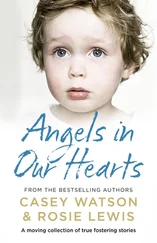But there is something before that, before the actual baby. There are Willie’s genes and my genes meeting inside of me, beginning a conversation apart from either of us. Like ambassadors from foreign countries sent to negotiate, through a mixture of cocktail banter and lofty ideas they will come to some kind of agreement. I imagine that years from now the interviewer asks me whether I dreamed about my unborn baby. “The baby was never in my dreams,” I’ll say to her. “The baby was in my body dreaming with me, dreaming the language of my body.” The last time the conversation had only just begun. For that dreamy conversation, there is this part of me that is willing.
I look up at Willie’s face. His eyes are open — small, shiny plates in the dark. He will not go to sleep on me. We will stay up all night in these separate bodies.
THE ARRANGEMENT OF THE NIGHT OFFICE IN SUMMER
Contemplation
The midnight moon sheds solemn light on the low wooden fences that mark the boundaries of my parents’ neighborhood. I step easily over as I take my usual late-night walk, passing through newly mown lawns littered with the junk of leisurely East Coast summer lives — thick, abandoned paperbacks, their pages warped from reading by the pool; one flip-flop lost from its pair; still-damp towels hung over the handlebars of children’s bikes to dry.
Every night a different route, and tonight I stumble over a tribe of naked Barbies, their pointed feet jammed into the earth. They stand menacing and alert in a series of semicircles, like the guests (only naked) waiting for my younger sister’s fourth wedding to begin two days ago. Beyond the Barbie tribe, the yard swims with the remains of an afternoon spent lounging in the thick humidity — an empty pitcher; two tumblers, rims laced with salt. I trip over a sprinkler and lie still in the soft, cool grass, straining to listen to the world through the ear of my heart, the way Elliot, the professor I do research for in a university town in the Midwest, has encouraged me to do.
On the airplane ride here, in the plane with twenty seats, the stewardess smiled and announced, “Your closest exit may be behind you.” One of Saint Benedict’s edicts lodged itself in my mind: Day by day, remind yourself that you are going to die . I took a couple of Ativan instead, and as the plane took off I chanted under my breath. “Flying is boring. Flying is boring,” as the plane shimmied and shook down the runway, finally heaving itself into the air.
The Ativan had just begun its work on the muscle level — small twitches in my cheeks and hands — when the woman next to me mistook my involuntary movement for an invitation to converse.
“I’m a writer. What do you do?” she said.
The plane dipped ominously. Flying is boring. Flying is boring. “Well,” I said. I didn’t feel like explaining my status as eternal grad student, suspended in time like a perfect fruit fly in amber, or fluffing up my job as assistant researcher on a book about Benedictine monks. “I’m a librarian.”
I could have lied in any direction. Her question was a decoy, bobbing politely on the surface of our conversation, useless and hollow. She began her monologue.
“It was a sudden decision for me, really. A quick realization,” she said. “One day God slapped me on the ass and told me to be a writer.” What I had initially interpreted as hip funkiness — chunky turquoise earrings, wild salt-and-pepper hair, bright red lipstick — began to look more and more like the signs of a woman with questionable boundaries.
“I had no other choice,” she said. “Absolutely, no other choice. I’ve given up reading altogether. Not even the newspaper. I realized finally that it would corrupt the purity of my writing process.”
“I’m going to my younger sister’s wedding.” I held it up like a shield.
“I remember when my sisters got married. I’m one of five, you know,” the woman said. “Nine weddings, all divorced now. We weren’t cut out for commitment.” When she spoke, her earrings rattled.
When the plane shuddered and the engine’s deafening roar became a suspicious grumble, I headed for the bathroom. Pushing through my Ativan haze up the aisle, I had a vision of my underwear — crumpled and lying in years of unswept office dust, hair, and fingernail clippings — underneath Elliot’s desk where he’d pushed it with the toe of his shoe when a student began knocking on his office door. It made me wonder if there is an age when life is supposed to take off like a plane, when something as big as takeoff is supposed to happen.
A screen door slams, and a big hairy dog skids across the porch, toenails clattering. He bounds toward the nearest tree, lifts his leg to take a leak. When he’s done, he licks the salt off the tumblers and trots over to where I lie. He sniffs at my shoes, then snuffles his way up the rest of my body. With his margarita tongue, he licks away the tears rolling down the side of my face, then walks in those mysterious doggie circles, lies down with his head on my stomach, and falls asleep.
You stink like dog,” my sister Lanie says, eyes still closed, when I climb in next to her in her childhood bed. We’ve been sharing it since her fiancé, Jack, disappeared three days ago, the day before they were supposed to be married in my parents’ backyard. We are surrounded by dusty furniture moved “temporarily” from other rooms, stacks of yellowing magazines, and a papier-mâché clown head that Lanie made in high school. It lurks in the corner, a shadowy monster.
“Ruff, ruff,” I say, licking her cheek.
“That,” she says, wiping her face with the sheet, “is disgusting.” I watch her settle back into sleep. She heaves a few deep sighs and fades gently into herself. In there, swirling and colliding, are dreams she’ll tell me about tomorrow. She is capable of the perfect dream, or at least of composing the perfect dream, the one that resolves the problems of today, integrating all the necessary players. Today she told me last night’s dream of Jack gambling away her life savings in Atlantic City, where he is in reality holding the hand of an ex-girlfriend as she dies of AIDS, alone in a dirty apartment she can no longer afford. In Lanie’s dream, Jack rolled her wedding ring like dice across the green felt of a craps table.
Each night I roam the neighborhood and then lie in bed listening to what’s left of the waiting family breathe. My mother and father in their bed; Aunt Bernadette in my old room, smelling of new car upholstery and the cigarillos she smokes since she quit smoking cigarettes; cousin George and his new girlfriend whom no one likes, on the foldout couch in the living room. Carl, Lanie’s second husband, and Kevin, his boyfriend, in the guest room. As a group, we possess the qualities of a freshman college hall mixed with those of the only remaining survivors of a made-for-TV-movie nuclear holocaust — we eat whatever’s in the house and stay indoors, paralyzed by catastrophe but secretly happy for an excuse not to do our homework.
“We’re staying,” Carl declared when it became clear that Jack wasn’t showing up for the ceremony. Over the years Carl has remained one of Lanie’s closest friends. He called someone at the community college where he works to substitute for the English comp classes he hates teaching anyway. “I’m not going anywhere,” Aunt Bernadette said, taking a long drag of her cigarillo. She would manage her real estate business from here, no problem. “We won’t leave you in your time of need,” George’s girlfriend, Lizzie, said. No one had figured out precisely what it was that Lizzie did for a living, and even now, three days later, all we know is that it has to do with marketing something to someone. Lanie looked at me and mouthed, “Who is she?”
Читать дальше












